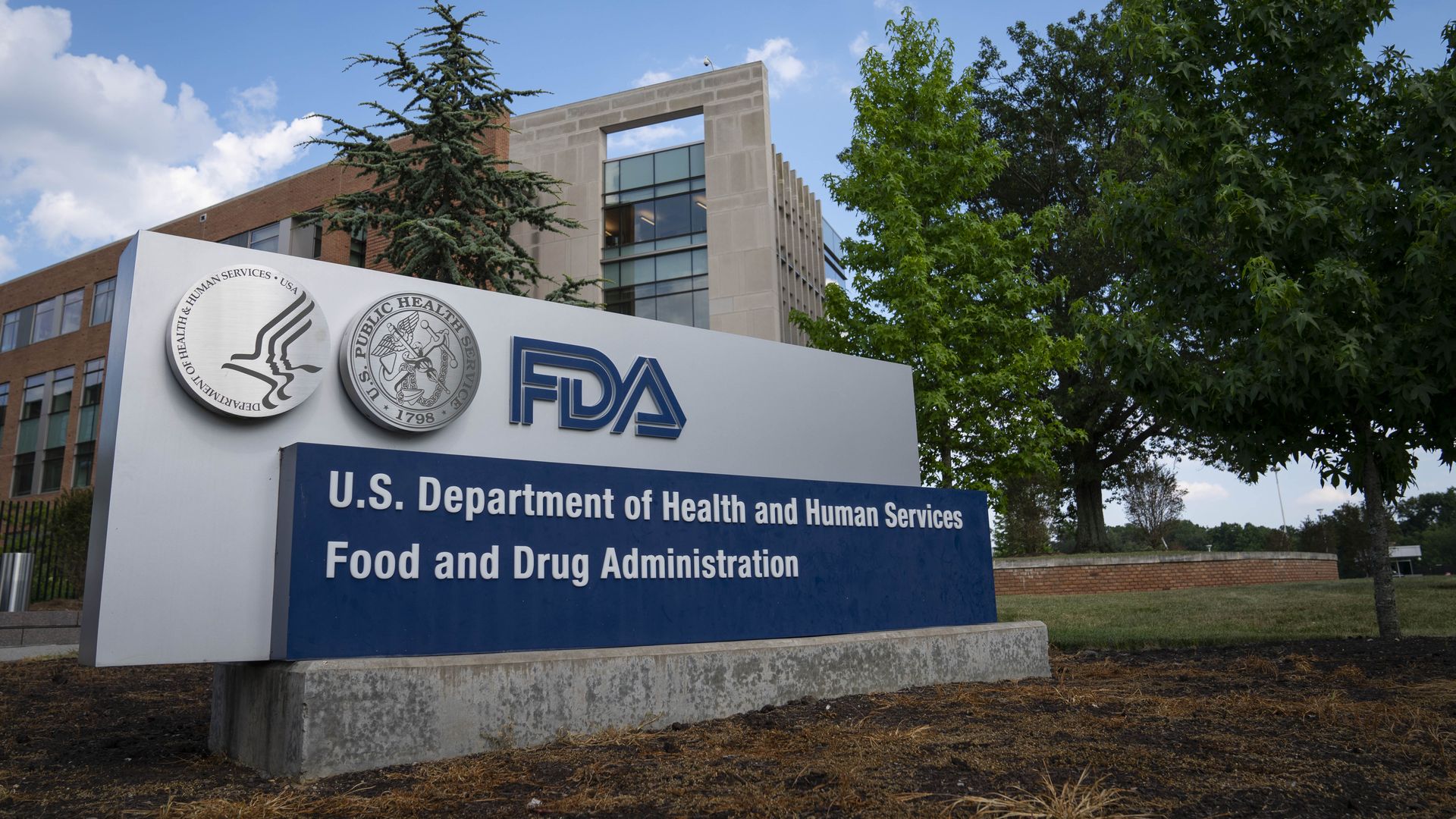Plus, a look at the other SCOTUS rulings | Monday, June 27, 2022
| | | | | | | Presented By Emergent BioSolutions | | | | Axios Vitals | | By Tina Reed · Jun 27, 2022 | | Welcome back from the weekend, Vitals readers. Today's newsletter is 862 words or a 3-minute read. 🥱 Groggy after some late nights? Recent studies have shown even more evidence that sleep deficits can't just be made up later — and those missed hours of sleep could be damaging your brain, the New York Times writes. | | | | | | 1 big thing: Fractured post-Roe landscape leaves questions about cross-border care |  | | | Illustration: Brendan Lynch/Axios | | | | The fall of Roe v. Wade leaves health providers facing a patchwork of standards for reproductive care now that state lawmakers have final say over whether abortions — and potentially, other facets of women's health — are performed within their borders, Axios' Arielle Dreher writes. Why it matters: Friday's Supreme Court decision will deepen divisions between red and blue states. - That could test alliances that were forged in response to COVID-19 to facilitate telehealth services, obtain scarce medical supplies and fill gaps in the health care workforce.
Zoom in: The situation could test interstate compacts that enable health providers to work across state lines with a single license if they follow the laws of the state they are practicing in. - Experts say providers of reproductive health services should be able to work across state lines as long as they follow local laws. And it's possible that all of the states in a compact could agree not to provide abortion, said Isabelle Bibet-Kalinyak, a New-Jersey based attorney who represents health care companies.
Yes, but: States with abortion bans might still attempt to restrict what providers can and cannot do beyond their borders in order to stay licensed in their state. The big picture: The Biden administration and Attorney General Merrick Garland on Friday reiterated that states cannot restrict services provided outside their borders. - Governors of the three West Coast states signed a pact on Friday to protect patients who seek abortion care and providers who offer it in Washington, California and Oregon.
What they're saying: The decision "opens a deep political rift between states over access to reproductive health services that places sound medical practice and the health of patients at risk," Jack Resneck, president of the American Medical Association, said in a statement. Related: Abortion pills become central issue after SCOTUS ruling |     | | | | | | 2. The fallout of overturning Roe on benefits |  | | | Illustration: Sarah Grillo/Axios | | | | The transformed abortion landscape means that employers in the U.S. — which provide health insurance to nearly 180 million Americans — must now contend with a controversial subject most have long tried to ignore, Axios' Emily Peck writes. Why it matters: Most large employers' insurance plans cover abortion, and now these benefits have become politically fraught. Companies and insurers have started adding travel benefits so that workers' can access care, but that opens up a raft of legal questions, as the WSJ reports. - "We're going to be in years of litigation over these issues," Kerri Willis, a senior vice president at Aon PLC's U.S. Health Solutions unit, told the paper.
|     | | | | | | 3. The other SCOTUS cases | | The Supreme Court on Friday backed the way HHS calculates some Medicare payments to safety net hospitals that see a large proportion of low-income patients, Axios' Adriel Bettelheim writes. Why it matters: Medicare is full of highly technical payment policies that change every year, and hospitals were trying to recoup potentially billions of taxpayer dollars. Driving the news: In a 5-4 decision, justices considered the formula HHS should use to make so-called disproportionate share, or DSH, payments to reflect the increased cost of caring for low-income patients. - The majority concluded the department followed the correct procedures when it changed the way it calculates the rates.
- The ruling didn't directly address the so-called Chevron doctrine, which says federal agencies like Medicare have some leeway to interpret ambiguous laws, and courts should defer to them.
Between the lines: Hospitals have been more aggressive about using courts to challenge federal payment policies they believe are unlawful. - Another case at the court this term found justices siding unanimously with hospitals in a dispute over whether the federal government had the authority to cut facilities' payments for outpatient drugs.
|     | | | | | | A message from Emergent BioSolutions | | Providing biodefense protection for soldiers and civilians | | |  | | | | For decades, Emergent has provided bio-defense preparedness. Why it's important: By developing, manufacturing and strengthening medical countermeasure stockpiles, we can help protect against serious public health threats. Learn more. | | | | | | 4. FDA to examine variant changes for COVID shots |  | | | Photo: Sarah Silbiger/Getty Images | | | | A key FDA advisory committee will meet Tuesday to examine how COVID-19 vaccines should be modified as the virus evolves and vaccine protection wanes. Why it matters: It could help spell out the longer-term plan for protecting Americans against the virus at a time when existing vaccines can't seem to keep up with emerging strains. Driving the news: On Saturday, Pfizer-BioNTech said a trial of its two Omicron-modified COVID-19 vaccine candidates elicited a "substantially higher immune response" against the Omicron BA.1 variant compared to the companies' current COVID-19 vaccine. What we're watching: Whether retooled vaccines could become outdated by the time they become available. - Pfizer and BioNTech acknowledged preliminary studies demonstrate both Omicron-adapted candidates neutralize the subvariants Omicron BA.4 and BA.5 to a lesser extent than they do for BA.1.
- "We will therefore remain vigilant and are prepared to rapidly adapt our Omicron-adapted vaccine candidates to emerging sublineages if epidemiological and laboratory data suggest," Ugur Sahin, CEO of BioNTech said in a statement.
|     | | | | | | 5. While you were weekending |  | | | Illustration: Aïda Amer/Axios | | | | 🏛 A federal appeals court on Friday temporarily blocked the Food and Drug Administration's order for Juul to stop selling e-cigarettes. (Axios) 🩺 Experts are calling current levels of monkeypox testing "abysmal," saying the illness is likely far more prevalent than current numbers suggest. The big threat? That monkeypox may become a long-term — perhaps even permanent — problem in the U.S., they say. (NPR) ✈️ With more people thinking about their wellness after COVID, luxury hotels have jumped in to fill the voice with everything "from mists designed by biochemists and "mitochondrial training" to stem-cell therapy sessions. (Wall Street Journal) |     | | | | | | A message from Emergent BioSolutions | | Providing biodefense protection for soldiers and civilians | | |  | | | | For decades, Emergent has provided bio-defense preparedness. Why it's important: By developing, manufacturing and strengthening medical countermeasure stockpiles, we can help protect against serious public health threats. Learn more. | | |  | It's called Smart Brevity®. Over 300 orgs use it — in a tool called Axios HQ — to drive productivity with clearer workplace communications. | | | | | | Axios thanks our partners for supporting our newsletters. If you're interested in advertising, learn more here.
Sponsorship has no influence on editorial content. Axios, 3100 Clarendon Blvd, Suite 1300, Arlington VA 22201 | | | You received this email because you signed up for newsletters from Axios.
Change your preferences or unsubscribe here. | | | Was this email forwarded to you?
Sign up now to get Axios in your inbox. | | | | Follow Axios on social media:    | | | | | |
No comments